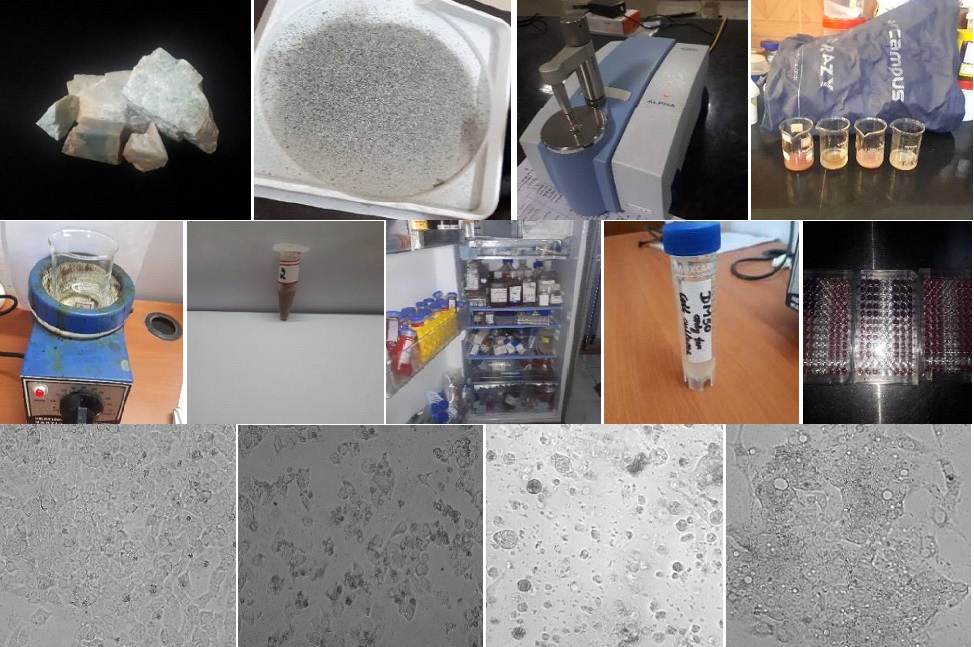Amazonite (A Microcline Feldspar) - An Anti-Cancerous Geo-Biotechnological Approach for H460: Human Lung Cancer with Validation via Ros Anti-Oxidant Analysis
DOI:
https://doi.org/10.47070/ijapr.v12i5.3245Keywords:
Radiotherapy, Cancer Drug Agent, Lung cancer- H460Abstract
The research delves into the medicinal properties of amazonite, with a particular focus on its potential application in nanomedicine for combating lung cancer. Employing the MTT Assay, the authors observed amazonite's impact on H460 lung cancer cells, revealing its cytotoxic effects and thereby suggesting its promise as an anti-cancer agent. Moreover, through ROS antioxidant analysis, the study unveiled amazonite's ability to regulate reactive oxygen species levels, indicating its potential in mitigating oxidative stress-induced damage, a hallmark of cancer progression. FTIR spectroscopy emerged as a crucial tool in the research, offering insights into amazonite's molecular composition and its possible interactions with biological molecules. Of paramount importance is the toxicity analysis conducted in the study, which revealed amazonite's low toxicity profile. This aspect is particularly significant as it underscores the safety of amazonite for potential therapeutic applications, including in conjunction with treatments like radiotherapy. The assurance of low toxicity is pivotal in ensuring the viability of amazonite as a candidate for clinical use, instilling confidence in its safety profile and minimizing adverse effects on patients. Overall, the findings of the research underscore amazonite's potential as a safe and effective nanomedicine for the treatment of lung cancer. The observed cytotoxic effects on cancer cells, coupled with its ability to modulate reactive oxygen species levels and low toxicity profile, position amazonite as a promising candidate for further exploration in the realm of cancer therapy. However, the study also highlights the need for continued research to fully elucidate the underlying mechanisms of amazonite's action and to explore its potential clinical applications comprehensively.
Downloads




